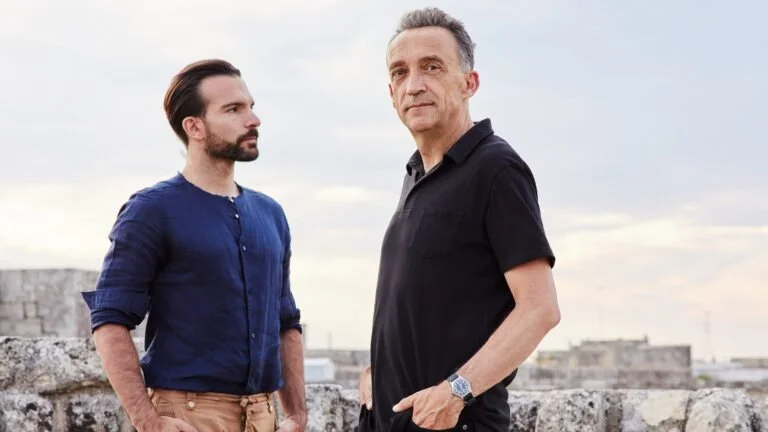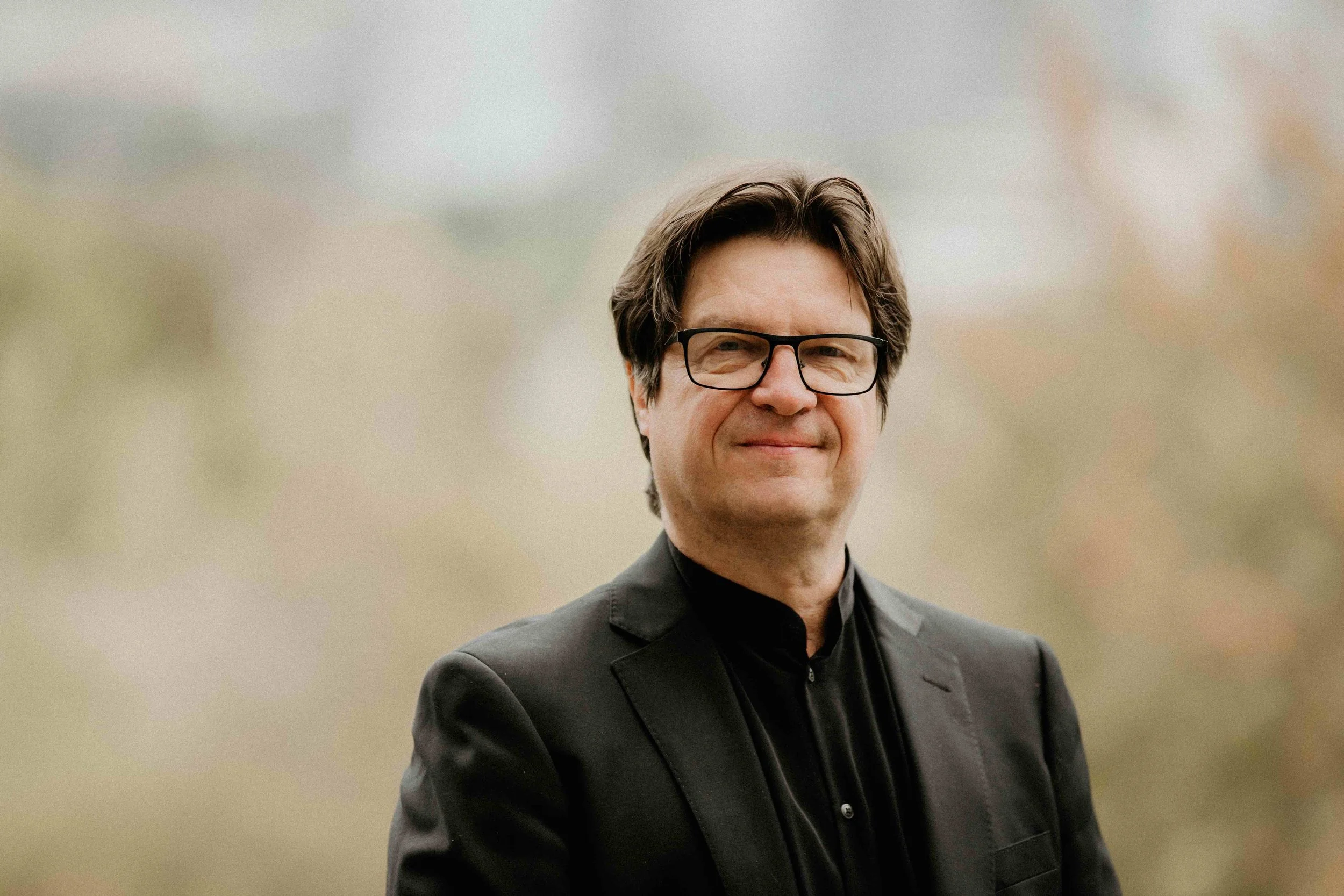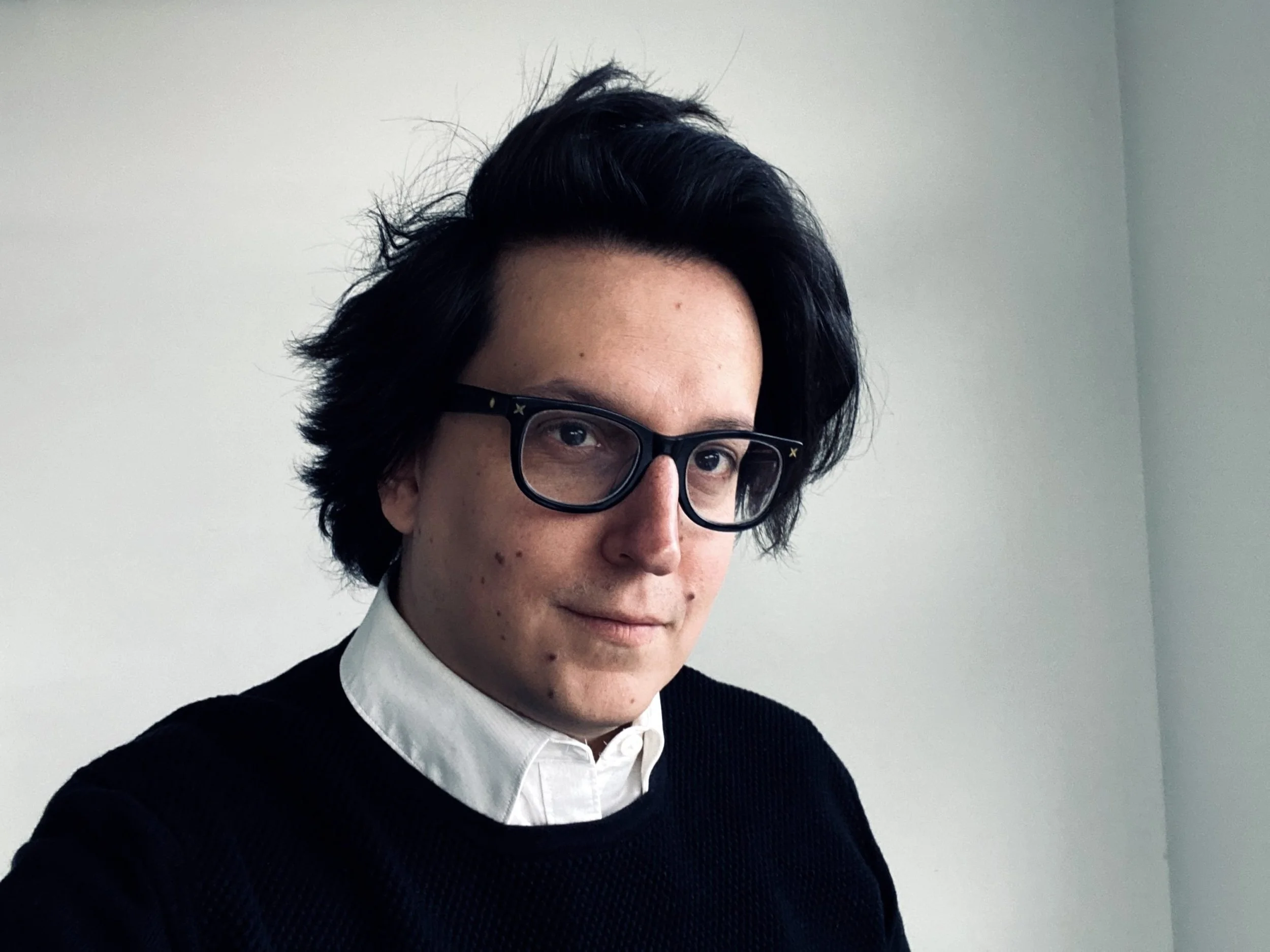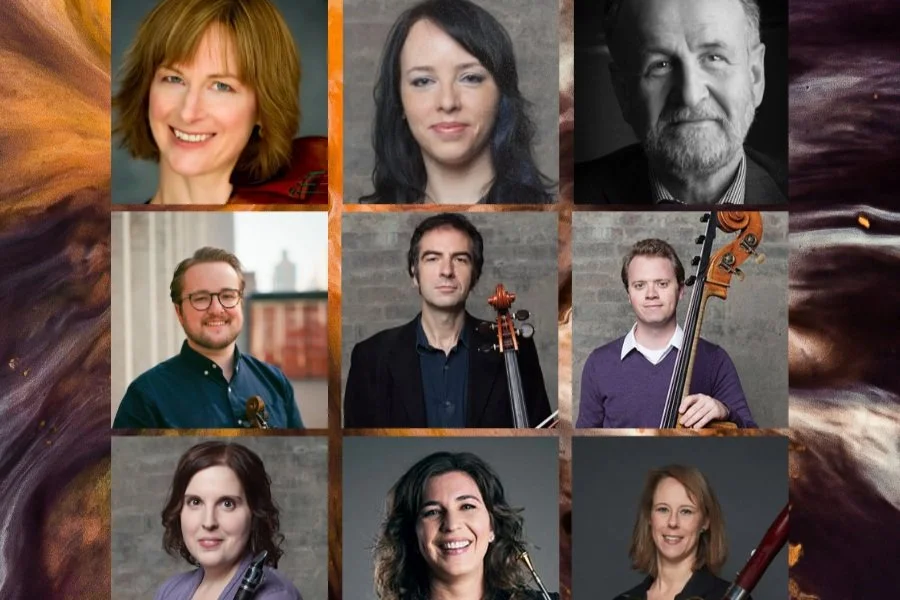Justin Adams and Mauro Durante's music migrates fluidly from Middle East to Puglia, and beyond
The electric guitarist and violinist-percussionist, set to hit the BlueShore at CapU, bring their diverse influences together in blues that transcend borders
Mauro Durante (left) and Justin Adams.
Justin Adams and Mauro Durante play the BlueShore at CapU on February 28
IN THIS DUO, ONE of the two musicians was a world traveller almost from birth, having lived on four continents by the time he was a teenager. The other is deeply identified with the music of a small and specific area: the Italian province of Puglia, which comprises the heel of the Mediterranean peninsula’s boot. One plays a loud electric guitar reinforced with plenty of grit and distortion, the other an acoustic violin, alternating that with a variety of tambourines and other frame drums. One has shared stages world-wide with rock stars, most notably Led Zeppelin’s golden god, Robert Plant. The other is deeply embedded in his community and has, until now, been largely unrecognized in North America.
But when Justin Adams and Mauro Durante play together, all of these distinctions fall away, and they create a sound that miraculously touches on sources as distinct as John Lee Hooker–style boogie and the violin caprices of Niccolò Paganini while remaining indisputably their own.
When he thinks about it, it’s a combination that seems miraculous to Adams, too, although he can indicate some points of connection.
“There were no musicians in my family background, as far as I know, at all,” he says, caught on the telephone during a brief tour respite in New York City. “But my dad was a diplomat, a British diplomat, and I think what I did inherit from my father was a kind of openness to sounds from around the world. When I was six months old we moved to Chicago from London, and lived there for a few years when it was the music of the early ’60s; it was the Beatles and Joan Baez and Peter, Paul and Mary. And then towards the end of the ’60s we moved to Jordan and lived in the Middle East, and then my father moved to Egypt, and that was in the classic time of great Egyptian singers like Umm Kulthum, and when bellydancing was still allowed in the nightclubs. And so it was a fantastic period of Arabic music.
“I kind of took a lot of that in, and then I was in the U.K. for the birth of punk rock and the new-wave scene, and obviously reggae was a very active and exciting scene in London at that time,” he continues. “And people like David Byrne and Peter Gabriel were opening up to music from Asia and Africa, and that was a natural move for me, because I’d lived in the Middle East myself and my ear was kind of attuned to that.
“So that’s a brief version of my background, of how I got here,” he adds with a laugh.
Adams quickly corrects my misconception that his duo partner must hail from a long line of traditional musicians, but the guitarist does allow that music played a larger part in Durante’s upbringing than in his.
“Basically, his father—a guy called Daniele Durante—was from Puglia, and I think he was someone who realized that the traditional music of his region was in danger of disappearing,” he says. “It wasn’t really a form of professional music; it was like a community, village form of music that was originally used for healing rituals, like trance-healing rituals. And it had religious connotations: it was used in the invocation of saints to sort of ward off evil spirits who were personified as poisonous spiders. They weren’t actually poisonous spiders, but that was the language that they used to describe the illnesses that people would succumb to—which were perhaps a kind of mental illness. So this community fiddling and drumming and accordion-playing, and a special kind of singing, were used to raise people’s spirits. Daniele Durante was one of a movement of people who kind of revived this dying tradition, a little bit like the folk revival in America and in England and other parts of the world.”
Mauro’s parents, Adams adds, formed the band Canzoniere Grecanico Salentino in 1975; their son joined at 17, and became the group’s artistic director at 24, in 2007.
In order to make sense of how the two connected on a musical level, however, it’s necessary to know that Adams spent a good chunk of the last few years recording and touring with the Gambian griot and nyanyero virtuoso Juldeh Camara, and that the music of Puglia was powerfully influenced by both Arab and Ottoman sounds. Barbary pirates from North Africa sacked the region in 1554; the Ottoman influence came via both trade and conquest. As displayed on their brilliant debut recording, Still Moving, the two draw on a shared Mediterranean culture whose tendrils also extend to sub-Saharan Africa, Asia, and even the southern United States.
“For instance, the frame drum,” Adams postulates. “You’ll find it with the Indigenous people of the Americas, and you’ll find it in China, and you’ll find it right across Central Asia. And of course in North Africa there are frame drums, and they were used in Dionysian ritual in ancient Greece, and they’re used in shamanic ritual in Central Asia. And even when you look at a form of music like the North American blues, you start to trace that back to its origins in West Africa, and you think about the function of that music. They’re raising the spirits like in gospel music, or they’re giving the news like the griot, who has special license to comment on the actions of kings… So it’s an infinite and fascinating and beautiful connection, and I believe that rock ’n’ roll really derives from that, from all of those traditions.”
One of the pleasures of listening to Still Moving lies in teasing out the way these connections work: one melody would be perfectly at home in a Turkish meyhane but is backed by a Pugliese taranta rhythm; another might be almost operatic, while butting up against a loose approximation of Mississippi roadhouse music. There’s a deeper subtext here, however, and it has to do with who Adams and Durante are as well as with this particularly fraught moment in human history. Both England and Puglia are destinations for migrants from the global south, and both are trying to stymie cross-border movement by brutal and often fatal means. The very act of making music that negates cultural boundaries is in itself subversive, but Still Moving goes further: it’s a portrait of migration, running from a song that celebrates home (“Amara Terra Mia”), to one about being stateless (the title track), to a soulful meditation on loss and exile (the traditional “Damme Le Manu”).
Adams downplays the idea that Still Moving is a concept album, but doesn’t discount it entirely.
“There is the question of migration and nationalism versus an international world-view,” he says. “The life we live as musicians, the culture that I’m drawn to, and the way I actually want to play music are in direct opposition to that kind of small-minded nationalism. And what with Brexit and everything else that’s happening in the world, it’s a theme you can’t really avoid.
“But you know what? A lot of the time there’s no set plan,” he adds. “It’s just the things that you’re drawn to, and the things that seem to work, and the things that seem to resonate, you know. One idea suggests another, or you play something with a fast rhythm and then you think you want to play something with a slow rhythm after that. We tend not to be very preconceived; the themes seem to evolve naturally from what you’re drawn to and what works.”
Still, ending with the Carter Family homily “Little Moses”, which tells the story of a future world leader adopted into a powerful family after being discovered as a baby, adrift in an open boat, seems too pointed to be accidental. Having featured on Harry Smith’s seminal compilation of 1952, the Anthology of American Folk Music, it’s a nod to the original folk revival that both Adams and Durante have tapped into, but it’s also a reminder that the three religions currently warring in the Mediterranean—Christianity, Islam, and Judaism—all share a common source.
“I feel comfortable with that,” Adams says. “While we didn’t think of it idea-wise first of all, that’s completely in our language and in our philosophy.”
![]()














